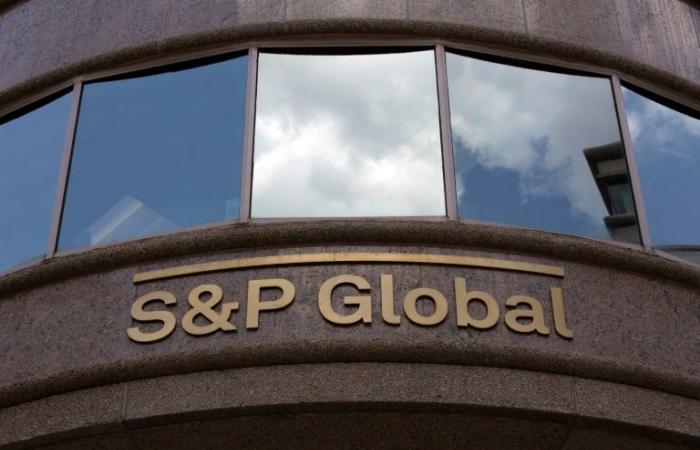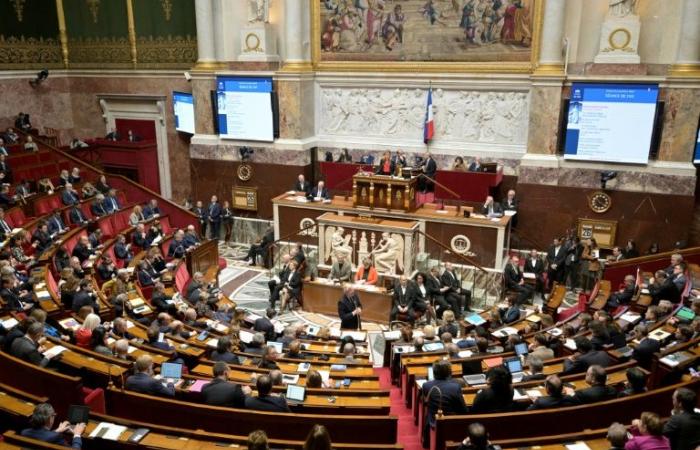After warnings from Moody's and Fitch, the S&P rating agency unveils on Friday its new assessment of France's sovereign debt, which the government is trying to maintain at the cost of concessions on the budget for 2025.
The decision by S&P Global Ratings, expected in the evening, comes as the minority government is multiplying compromises to try to escape a motion of censure, which could take place as early as next week on the Social Security budget and plunge according to the executive, France is in an economic and financial “storm”.
After a decline in pensions or employer contributions, the government agreed not to increase a tax on electricity beyond its pre-tariff shield level, in order to satisfy the National Rally (RN) which threatens to join forces with the left to overthrow him.
Despite everything, the risk remains. The president of the RN tempered this “victory” by emphasizing that “red lines” remained for the far-right party, in particular on the reimbursement of medicines.
“Political instability will likely continue for a while longer. It would be legitimate for S&P to take note of this,” said Charles-Henri Colombier, economic director at Rexecode, to AFP.
“Stress important”
In May, the American rating agency lowered the French rating by one notch, from “AA” to “AA-“, with a stable outlook, reducing the risks of a further downgrade in the immediate future.
From now on, “it would be surprising not to have any adverse action concerning France, with at least a change to a negative outlook”, says Norbert Gaillard, economist and independent consultant, to AFP.
Especially since, since the revision of the note in the spring, the “bad news” has accumulated in a France already heavily in debt, appearing among the European dunces, he notes: dissolution of the National Assembly, late appointment of the Prime Minister, slippage in the public deficit.
In October, Moody's and Fitch maintained the French rating with a negative outlook.
Norbert Gaillard mentions two other possible scenarios: a further deterioration of the rating or its placement under negative surveillance (“rating watch”) to signal “significant stress” likely to evolve quickly.
S&P would then grant France a short reprieve before adjusting its rating. “To make its decision, the agency would wait to see the vote on the budget, the budgetary and fiscal measures it contains, and whether the government stands or falls.”
A negative outlook would have little impact on France's borrowing costs. On the other hand, a downgrade of the rating would add to the excitement already observed on the markets due to the risk of government censorship, because it would move to a lower category, considered less safe by large investors who would turn away from it.
A drop in demand “would mechanically lead to an increase in the rate of return,” explains Eric Dor, director of economic studies at the IESEG School of Management, in a note.
“Be careful of concessions”
In this explosive context, Michel Barnier wanted to reassure. Despite the “adjustments” made to the draft budget, which initially provided for 60 billion euros of effort in 2025, the Prime Minister assured Thursday that he was doing “everything to stay around 5%” of public deficit in relation to gross domestic product (GDP), compared to 6.1% expected in 2024.
Faced with the political uncertainty which has continued since the dissolution, the markets appear agitated.
After reaching a peak since 2012 at the start of the week, the gap between French 10-year sovereign rates and those of Germany, considered a safe haven in Europe, narrowed slightly after the announcement concerning electricity prices.
“The market looks less at the political aspect than at the estimated time to implement the first budgetary effort measures. A concession brings the timetable closer, so it is perceived positively,” Alexandre Baradez, head of the budget, explains to AFP. market analysis at IG France.
But “be careful with concessions”, he adds: France can always be sanctioned on the bond market “if too many concessions are made by political calculation at the expense of the effectiveness of the measures”.
France's borrowing rate is higher than those of Spain and Portugal, and for the first time on Wednesday, it briefly exceeded that of Greece, a country which had come close to bankruptcy.
■







